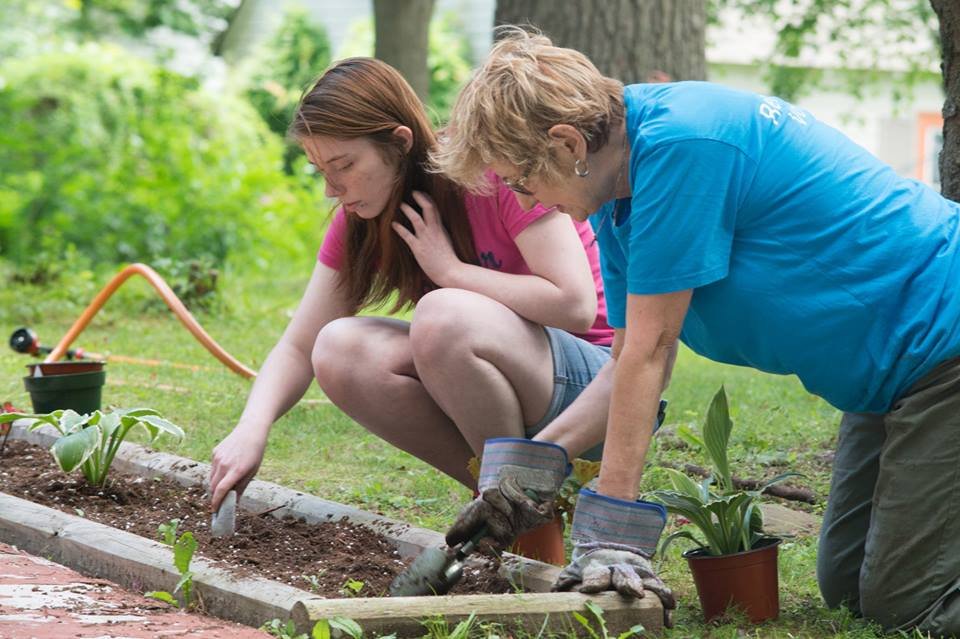Volunteering: The mental, emotional & physical health benefits
Volunteering is a way to help others; and a great way to improve your own health. It allows you to meet new people, stay active and reduce stress— all of which are key to maintaining your mental, emotional and physical well-being. Volunteering reduces stress levels, encourages life-long learning, and lowers blood pressure. Volunteering can help you:
*Connect With Other People
Volunteering is about making connections with people. Whether you’re connecting with the people you’re volunteering for, your fellow volunteers, or the volunteer organizers; when you volunteer your time, you can feel more socially connected and less lonely.
* Contribute to a Cause
Actively supporting a cause that’s important to you helps you feel connected to something bigger than yourself. While donating money to a non-profit organization is a great way to get involved, giving your time can be even more valuable. Volunteering lets you physically support something you care about and meet people who share your values.
*Get Out of the House
One of the simplest benefits you get from volunteering is a great excuse to get out of the house. Most volunteer work involves going to a specific location and performing certain duties.
*Connect to the Community
Volunteer work often centers around community betterment, so becoming an active volunteer is a great way to strengthen your bond with your community. When you volunteer, you can strengthen your network within the community with those you meet, work with, and help. Having a strong connection with your community can also help you improve your health. Being part of a community can give you a sense of social connection and belonging, which can counter stress and feelings of loneliness.
*Reduce Depression and Stress
Volunteering reduces stress and depression because it encourages you to move more, connect with your community, and help those in need. One study by the Corporation for National and Community Service found that those who regularly volunteer have lower rates of depression, especially older volunteers. Volunteer work can also reduce stress, which is strongly linked to health outcomes. Another study found that volunteering can help reduce feelings of depression in chronic pain patients.
*Improve Confidence
A large part of volunteering is talking with others and effectively expressing yourself. The more you talk, the more you learn to advocate, which leads to higher levels of self-confidence.
For example, if you’re not a confident public speaker, working as a volunteer can help build your confidence. You may need to address a group of students during after-school tutoring or talk to a group of fellow volunteers, both of which can help boost your self-confidence.
*Boost Your Happiness
Many find that volunteering is a great way to boost overall happiness. What makes an individual happy varies depending on the person and the volunteer activity. If being around animals and making sure they’re safe and healthy makes you happy, volunteering at an animal shelter may bring you joy.
*Learn New Things
Volunteer work often includes some element of learning. When you take the time to learn new skills and pass them along to others, you keep your mind sharp by enhancing your memory and thinking abilities. As you age, it becomes more and more crucial to find stimulating activities that keep you thinking and learning — and volunteering is a great way to do that while supporting an important cause.
*Get More Physical Activity
Most types of volunteer work require some kind of physical activity, which brings a host of benefits with it. While different types of volunteer work will require varying levels of physical activity, most will require at least some physical movement, which is beneficial to your health.
*Lower Your Blood Pressure
If you want to learn why volunteering is good for your health, you don’t need to look much further than its effect on your blood pressure. One study found that adults over 50 who volunteer at least 200 hours per year are 40% less likely to have high blood pressure, which can often lead to stroke, heart failure, and premature death.
*Promote Heart Health
Volunteering is linked to reduced stress, increased physical activity, and lower blood pressure, so it comes as no surprise that the heart would be positively affected as well. One study focusing on adolescents found those who spent one hour a week volunteering with elementary school children in an after-school program had lower levels of cholesterol and inflammation, plus lower body mass indexes (BMIs), meaning they had healthier hearts and less body fat.
*Extend Your Life
Can volunteers live longer with the many mental and physical health benefits they gain? The short answer is probably. There’s no definitive proof that volunteering can mean the difference between a longer life and a shorter one, but all the benefits that come with volunteering — such as human connections, physical activity, reduced stress, and lower blood pressure — contribute to a healthier and longer life.

